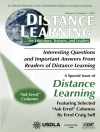Mapping geographies of power and knowledge in qualitative research
‘In this foundational tome, Professor Celine-Marie Pascale critiques methodology in relationship to specific qualitative methods and argues cogently that despite good intentions, most of this research is still tethered to the Cartesian paradigm thus limiting its emancipatory potential. This is an impressive book that will likely become a classic!’
— Eduardo Bonilla-Silva, Duke University, co-author with Tukufu Zuberi, White Logic, White Methods: Racism and Methodology
2012 Winner of the International Congress of Qualitative Inquiry Distinguished Book Award!
Using clear language and concrete examples, this text examines theoretical and historical foundations that shape the premise and logic of qualitative social research. It analyzes qualitative methodology and methods in relationship to issues of agency, subjectivity, and experience. Rooted to feminist, critical race, and post-structural literature, it is concerned with social justice as it critiques current research paradigms and advances broad alternatives.
This is an ideal text for students in graduate-level courses in Methodology, Epistemology, Qualitative Research Methods, Data Analysis, Ethnomethodology, Symbolic Interaction, Phenomenology, Grounded Theory, and related courses the social, behavioral, and health sciences.
قائمة المحتويات
Preface
About the Author
1. Introduction
Mapping the Journey
Familiar Intellectual Geographies
Implications for Social Research
Concluding Thoughts
Further Reading
2. Philosophical Roots of Research Methodologies
Introduction
The Changing Discourses of Social Science
Philosophy and Practice
Implications for Social Research
Concluding Thoughts
Further Reading
3. Analytic Induction
Introduction
Analytic Induction: A Brief History
The Basic Premise of Contemporary Analytic Induction
Analysis of Newpaper, Television, and Interview Exemplars
Implications for Social Research
Concluding Thoughts
Further Reading
4. Symbolic Interaction
Introduction
Symbolic Interaction: A Brief History
The Basic Premise of Symbolic Interaction
Anaylsis of Newspaper, Television, and Interview Exemplars
Implications for Social Research
Concluding Thoughts
Further Reading
5. Ethnomethodology
Introduction
Ethnomethodology: A Brief History
The Basic Premise of Ethnomethodology
Analysis of Newspaper, Television, and Interview Exemplars
Implications for Social Research
Concluding Thoughts
Further Reading
6. Social Research: Drawing New Maps
Introduction
The Problems of Social Research Revisited
A Matter of Ethics: The Making of a Social Scientist
Revisiting Subjectivity, Agency, and Experience
Envisioning Social Epistemologies
Implications for Social Research
Concluding Thoughts
Further Reading
References
Index
عن المؤلف
Celine-Marie Pascale is a professor of Sociology and an affiliate professor of Communication at American University in Washington, DC. Her research concerns language, inequality, and epistemology. She is the author of two award-winning books, Making Sense of Race, Class and Gender (Routledge, 2007) and Cartographies of Knowledge (Sage, 2011). In addition, she edited a field-defining international collection of original scholarship, Social Inequality & the Politics of Representation (Sage, 2013). She is the author of more than two dozen peer-reviewed articles and book chapters.












